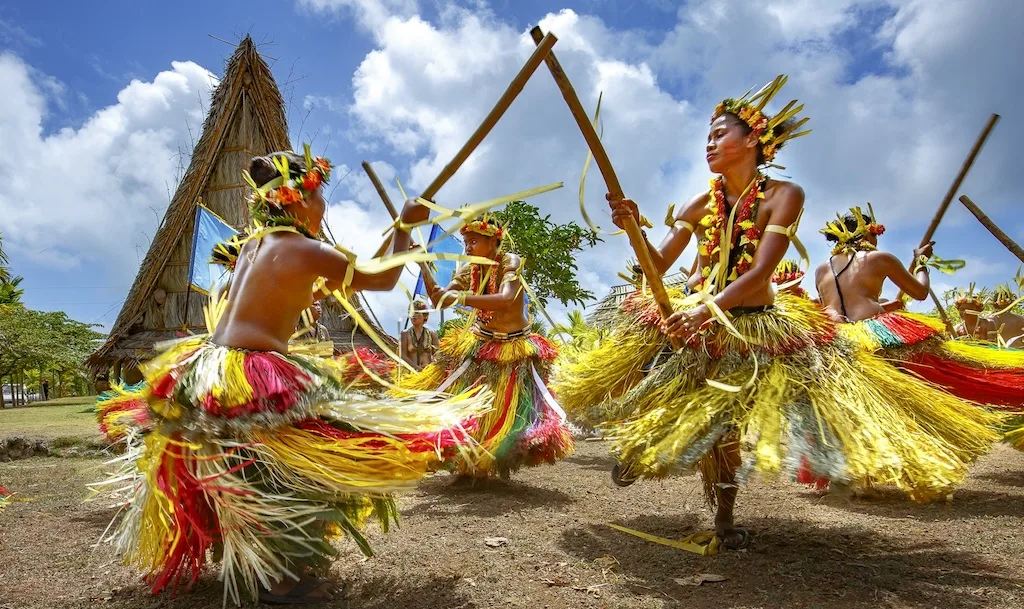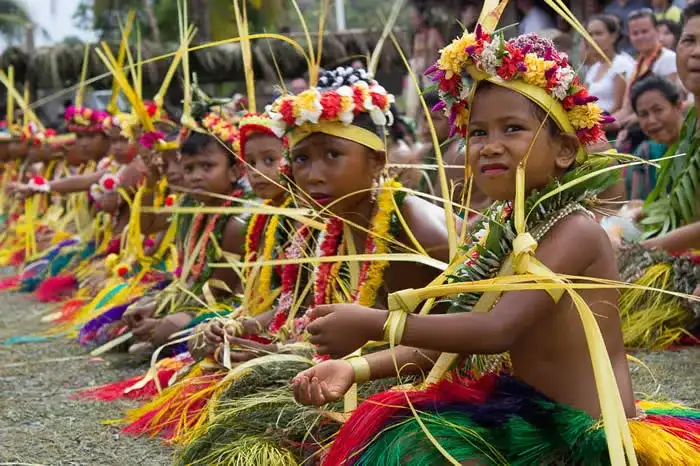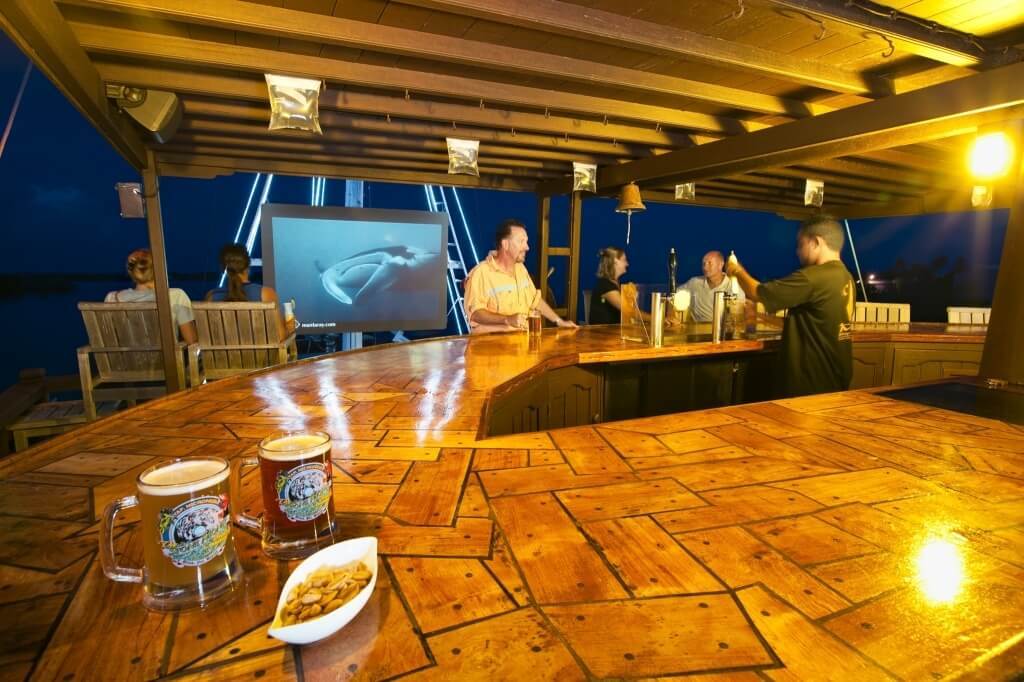Part of the Federated States of Micronesia, Yap is situated in the Western Caroline Islands, between Guam and Palau.
It is made up of four main islands, Yap South, Gagil-Tomil, Maap and Rumung.The landscape consists of rolling hills with lowlands covered in thick jungle-like vegetation. Most of the coastal areas are mangrove with occasional coral beaches.
Like other FSM islands, there is a coral reef, so snorkelling is popular as is diving in the clear lagoon with the giant manta rays which appear throughout the year.
The town of Colonia on Yap Main Island is the capital and is more urbanised than the village areas. Yap also has about 130 outer islands stretching nearly 1000 kilometres east of Yap Main Island. Most of the outer islands are coral atolls and are sparsely populated by a people that differ from those from the Yap Main Island both in culture and language.
Four indigenous languages are spoken. These are Yapese Main Islander, Ulithian, Woleaian and Satawalese. English is the official language spoken every day, though some local government organisations still conduct business in their own vernacular.
Because of its position, Yap was minimally affected when the Spanish colonised Micronesia in the 1500s, and again during German occupation from the end of the 1800s to the beginning of the First World War. The same thing occurred during the Japanese occupation, so by Micronesian standards, Yap remains relatively unaffected by modern society and influence. Most of the lands outside of Colonia downtown are privately owned properties so visitors are asked not to litter or to take any pictures of people without securing their permissions first.
The stone money of Yap (largest in the world), though not legal tender in the international currency marketplace, is still used as legal tender on the island. The value of these limestone, disk shaped coins varies, though not according to size but to the stories behind them. Today, the money is still owned but not moved, even though ownership may change.
Visitors can still see some of the traditional houses in the villages. The villages of Yap Main Island still retain the foundations of meeting houses and platforms used by the elder male residents to discuss community matters.
Only a limited number of tourists visit Yap each year, and the locals, who are naturally warm and friendly, are more responsive to those who respect their culture and customs.
All land and beaches on Yap Main Island and the outer islands are privately owned by the traditional leaders and chiefs. If you want to get off the beaten track, request to explore further by asking permission from the village/island elders. You may also have to pay a small fee for the privilege. Yap remains a distinctive destination because of the way the people value their culture, custom and history. The traditional dress is brightly coloured loin cloths for men and colourful grass or woven hibiscus skirts for women.
The official currency is the US dollar and credit cards are accepted at tourism accommodation properties, restaurants, supermarkets and the main shops. It is recommended that you bring some US$ cash or you can use any of the two bank ATMS on the island, which allow for cash withdrawals using international credit and debit cards.





